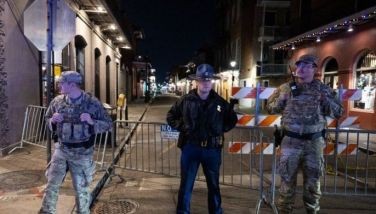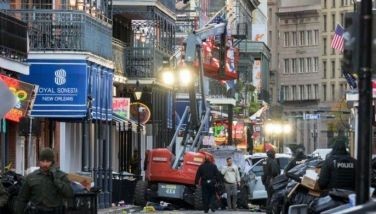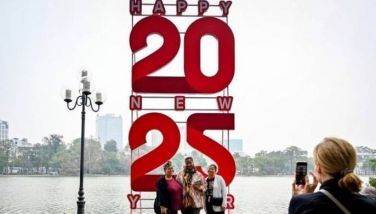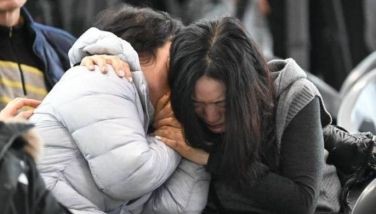Brazil protesters target Confederations Cup match
FORTALEZA, Brazil (AP) -- About 5,000 anti-government protesters battled police on Thursday near a stadium that is set to host a semifinal match of the Confederations Cup football tournament.
The protesters were marching peacefully but clashed with police as they near the outer limits of a security zone about 1 mile (2 kilometers) from the stadium in Fortaleza, where Spain was set to play Italy in the warm-up tournament to the 2014 World Cup.
It's the latest in a series of massive, nationwide protests that have hit Brazil since June 17. Demonstrators are angered about corruption and poor public services despite a heavy tax burden. Protests are also denouncing the billions of dollars spent to host the World Cup and the 2016 Olympics in Rio — money they say should be going toward better hospitals, schools, transportation projects and schools.
Victoria Ferreira, a 16-year-old protesting near the Castelao stadium in Fortaleza, said it was ironic that "if something broke out here, some violence, there will be no hospitals to take care of us."
Acrid tear gas still drifted in the air around Ferreira as police and clusters of protesters battled. Authorities were firing tear gas and rubber bullets in an unsuccessful effort to scatter the crowd, while protesters responded with slingshots, fireworks and rocks. At one point, a group of protesters broke through the outer police barrier and made a dash for the stadium, but they were pushed pack by police.
Scattered protests were reported around Brazil. Most were smaller gatherings of demonstrators focused on a single issue, not the sort of massive protests seen last week when as many as 1 million Brazilians poured into the streets to call for change.
In Brasilia, President Dilma Rousseff met with union leaders and legislators as the government continued to scramble to meet protester demands over anti-corruption measures and improved public services.
Rousseff was preparing the ground for a proposal she's expected to deliver to congress on Monday for a plebiscite on political reform that she wants to put before the Brazilian population in the coming months.
There are no details yet on what political reforms Rousseff will suggest nor how or when a plebiscite would occur.
Gilberto Carvalho, Rousseff's general secretary, told reporters in Brasilia Thursday that the biggest lesson the government took from the protests was that it needs to better hear and understand the voices coming from the street.
"For that reason, the plebiscite, which will allow people to express themselves about political reform, is extremely important," Carvalho said. "To underestimate the unpreparedness of the population would be an error, the same error of those who disregarded their capacity to mobilize in the streets.
- Latest
- Trending






























